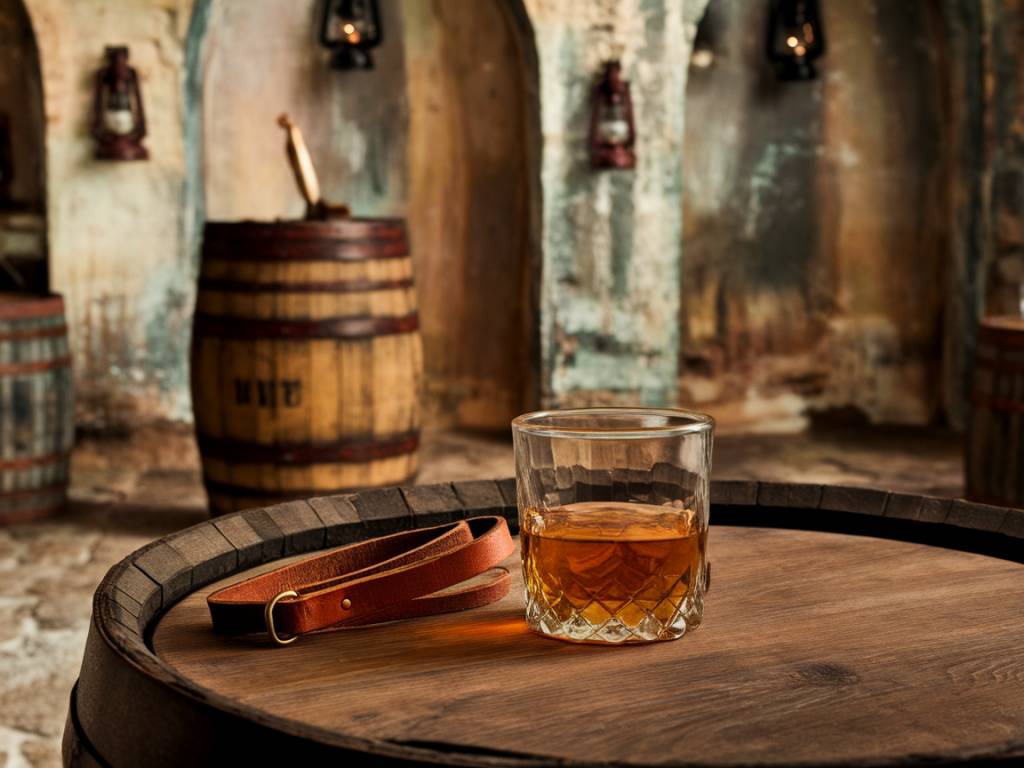The Welsh Whisky Revival: A Journey Through Time
When you think of Wales, what comes to mind? Rolling green landscapes, ancient castles, and charming coastal towns, perhaps? But what about whisky? While Scotland and Ireland tend to dominate the conversation around whisky, Wales quietly holds its own with a rich history and an exciting resurgence in recent years. Let’s take a closer look at the fascinating world of Welsh whiskies and the heritage of its craft.
A Brief History of Welsh Whisky
The story of Welsh whisky begins hundreds of years ago, though much of it remains obscured by time. Whisky production in Wales dates back to at least the 4th century, with monks in monasteries reportedly distilling barley into spirits. The practice continued sporadically through the centuries, but by the late 19th century, it had almost disappeared. Why? Industrialization, taxation, and changing cultural trends all played a part in the decline of Welsh whisky. For nearly a century, it seemed that Wales’ connection to whisky was destined to remain a footnote in history.
Fast forward to the late 20th century, and the story takes an unexpected turn. A small band of passionate whisky enthusiasts decided it was time to revive the tradition, starting a movement that would breathe new life into the craft. Today, Welsh whiskies are celebrated for their quality, distinct character, and undeniable sense of place.
The Pioneers of the Welsh Whisky Renaissance
No discussion about Welsh whisky would be complete without mentioning Penderyn Distillery. Located in the picturesque Brecon Beacons National Park, Penderyn was the first distillery in Wales to produce whisky on a commercial scale since the 19th century. Founded in 2000, it quickly gained international acclaim for its single malts, which are known for their unique style—light, fruity, and full of character.
What makes Penderyn special? For one, its custom-designed single copper pot still, which allows for a particularly pure and flavorful spirit. Then there’s the influence of the Brecon Beacons itself, whose clean spring water serves as a vital ingredient. Add to this the distillery’s innovative use of casks, from bourbon and Madeira to sherry and port, and you get whiskies that are as diverse as they are delicious.
Penderyn may have blazed the trail, but it hasn’t taken the journey alone. New distilleries are popping up across Wales, each with their own twist on this age-old craft. Take, for instance, Aber Falls Distillery in North Wales. Nestled near the dramatic Aber Falls waterfall, this distillery combines traditional methods with a commitment to using local ingredients, creating whiskies that are unmistakably Welsh.
The Unique Flavour of Welsh Whiskies
What sets Welsh whiskies apart from their Scottish or Irish counterparts? It’s all about the terroir. Yes, you read that right—terroir isn’t just for wine! The barley, water, and even the air all contribute to the final product, and in Wales, these elements come together to create something truly distinctive.
Imagine sipping a dram of Penderyn Madeira Finish, with its sweet notes of tropical fruit and vanilla, or Aber Falls Celtic Blend, with its smooth hints of spice and honey. These whiskies are crafted not just to be enjoyed but to tell a story—a story of a land steeped in history, tradition, and resilience.
Distillery Tours: A Taste of Wales
One of the best ways to truly appreciate Welsh whisky is to visit the distilleries themselves. Have you ever wondered what goes on behind the scenes as whisky is made? Walking through a distillery, you’ll smell the fermenting grains, feel the heat radiating from the stills, and see the casks stacked high in aging warehouses. It’s an immersive experience that brings the process to life.
Penderyn Distillery offers one of the most popular tours in Wales, where visitors can learn about the unique methods behind their award-winning single malts and, of course, enjoy a guided tasting. Aber Falls Distillery also provides a fantastic tour experience, complete with insights into their sustainability initiatives and a stunning view of the nearby waterfall.
For those seeking a deeper dive, why not explore the newly established Cardigan Distillery or Dà Mhìle Distillery? The latter is particularly intriguing for its organic approach to whisky making, offering an exciting glimpse into the future of sustainable distilling practices.
Modern Innovations in Welsh Whisky
Tradition may play a central role in Welsh whisky, but that doesn’t mean distillers are stuck in the past. Many Welsh distilleries are embracing innovation, experimenting with different grains, cask finishes, and even aging techniques. For example, Penderyn’s “Icons of Wales” series celebrates Welsh culture and history through limited-edition bottlings with unique flavor profiles. One release pays tribute to Lloyd George, while another honours the Red Dragon on the Welsh flag.
In contrast, Aber Falls is making strides with hybrid whiskies. They’re pushing boundaries to show that Welsh whisky can hold its own in global markets while maintaining its local identity. And let’s not forget how these distilleries are engaging with a new generation of whisky lovers through interactive tastings, festivals, and social media storytelling.
Pairing Welsh Whisky with Traditional Foods
You know what makes Welsh whisky even better? Pairing it with food! The versatility of these whiskies means they can be enjoyed alongside a range of traditional Welsh dishes. For a classic pairing, try Penderyn Sherrywood Finish with a serving of Welsh rarebit. The rich, cheesy dish complements the subtle sweetness and nutty notes of the whisky perfectly.
Feeling more adventurous? Pair an Aber Falls Single Malt with laverbread, a traditional Welsh delicacy made from seaweed. The umami flavors of the laverbread bring out the maritime undertones in the whisky—delicious and distinctly Welsh. And, of course, no whisky tasting in Wales would be complete without some bara brith, the iconic Welsh fruit loaf, which pairs beautifully with a dram.
The Future of Welsh Whisky
As the global craft whisky scene continues to grow, the future looks incredibly bright for Welsh whisky. New distilleries are on the rise, established names are expanding their reach, and the world is starting to take notice of this small but mighty whisky-producing region. What’s next? Perhaps a Welsh whisky festival to rival those in Scotland and Ireland? Or even more collaborations with other Welsh culinary artisans?
Whatever the future holds, one thing is certain: Welsh whisky is here to stay. So, next time you raise a glass, why not make it a Welsh one? Iechyd da (cheers) to that!

